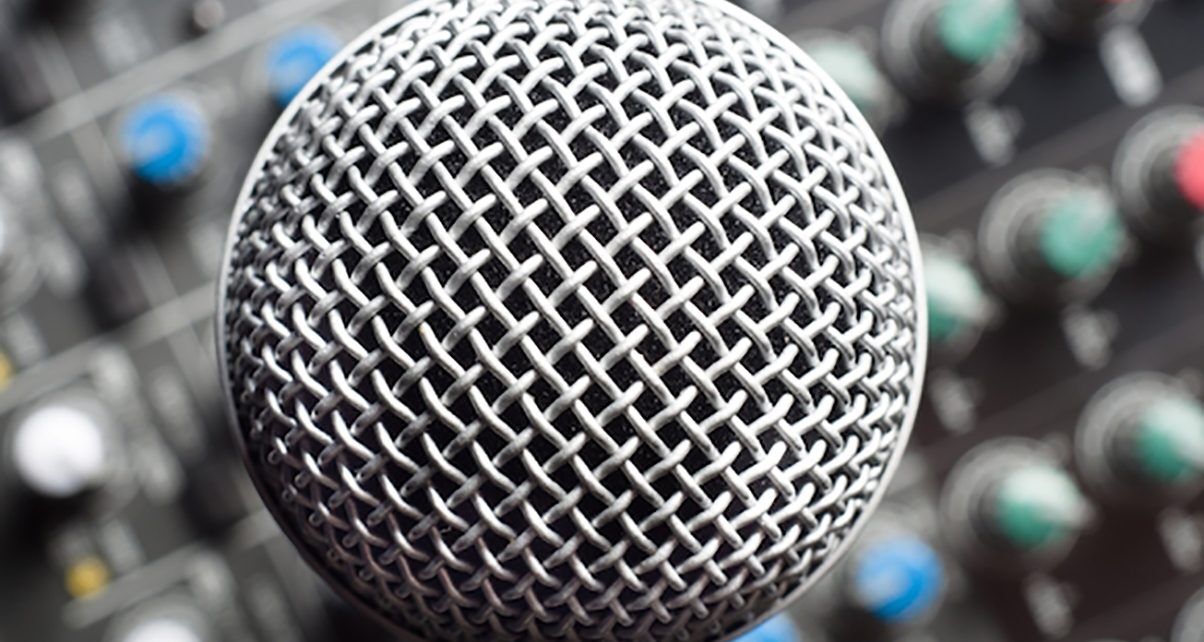Digital DJ Masterclass owner Stephen writes: “I am starting to do wedding DJing and I need a good mic, but I don’t want to spend much more than $100 to $150 if I can help it. I heard that the Shure SM58 is the industry standard. But I also heard that the Electro-Voice Co9 Cobalt is good too for a little less money. One thing that’s important to me is that my mic has minimal feedback. Do you have a recommendation?”
Digital DJ Tips says:
Yep, the Shure SM58 is the industry standard (although slowly being replaced by the Shure Beta 58), but actually my advice is to stay away from it! True, it’s a very strong mic physically (it can take beer spillages and being swung from its cord), but it’s also a very low output mic. While this means it can handle immense sound pressure levels without flipping out (so a rock star belting into it while it makes love to his tonsils is not a problem), this means it NEEDS a lot of volume to generate some serious signal level. And remember, we are DJs – we talk, we don’t sing. So what we actually need is something that is strong in the speech area (say 1-4KHz) and doesn’t need shouting into to become half-way audible.
At this price you are not gonna get a wireless mic, so we are looking at wired. So do you want condenser or dynamic mic? This is a tougher question. Condensers are more sensitive and have more dynamic range so it’s easier to play with your voice. They are delicate, though, and they need some kind of power, either “phantom” (which no controller or DJ mixer has) or battery. For these reasons, I’d say you should forget condenser mics. So we’ve narrowed it down to a wired dynamic mic. One of my favourites in the low end range is the Rode M1. Another nice one is the AKG D5. Depending on whether your controller mic channel has an on/off switch, you might opt for a switched version of these mics.
There are many brands, though (I haven’t heard the Electro-Voice you mention yet, so can’t speak from experience), and so my advice is to go to a store with a friend, pick a handful of mics that are in your budget range, have them hooked up and let your friend tell you which he thinks sounds best (ie that sounds most like you) and has the most speech clarity. You see, a mic that works great with my voice – I am still using my 30-year-old AKG D321 – might sound horrible with your voice. So nobody can tell you what the best mic for your voice is without that kind of testing.
Avoiding feedback
As far as feedback goes, feedback shouldn’t worry most DJs. Feedback mostly occurs on a busy stage where the mic is a mere metre from the floor monitor. The sounds comes from the blind side of the mic (the back) until the singer turns sideways a little and – presto! feedback. But us DJs stand behind a booth/table with no sound coming from behind us (if you have your speakers behind you, I suggest thinking about reconfiguring). If you use a booth speaker, it shouldn’t send out your mic sound. And there’s no danger of feedback if your voice is not coming out of the monitor speaker. So I wouldn’t let this worry you.
What mic would you recommend? What do you use in your DJing? Made any errors you wish you’d known about before buying a mic? Please share your thoughts below.


